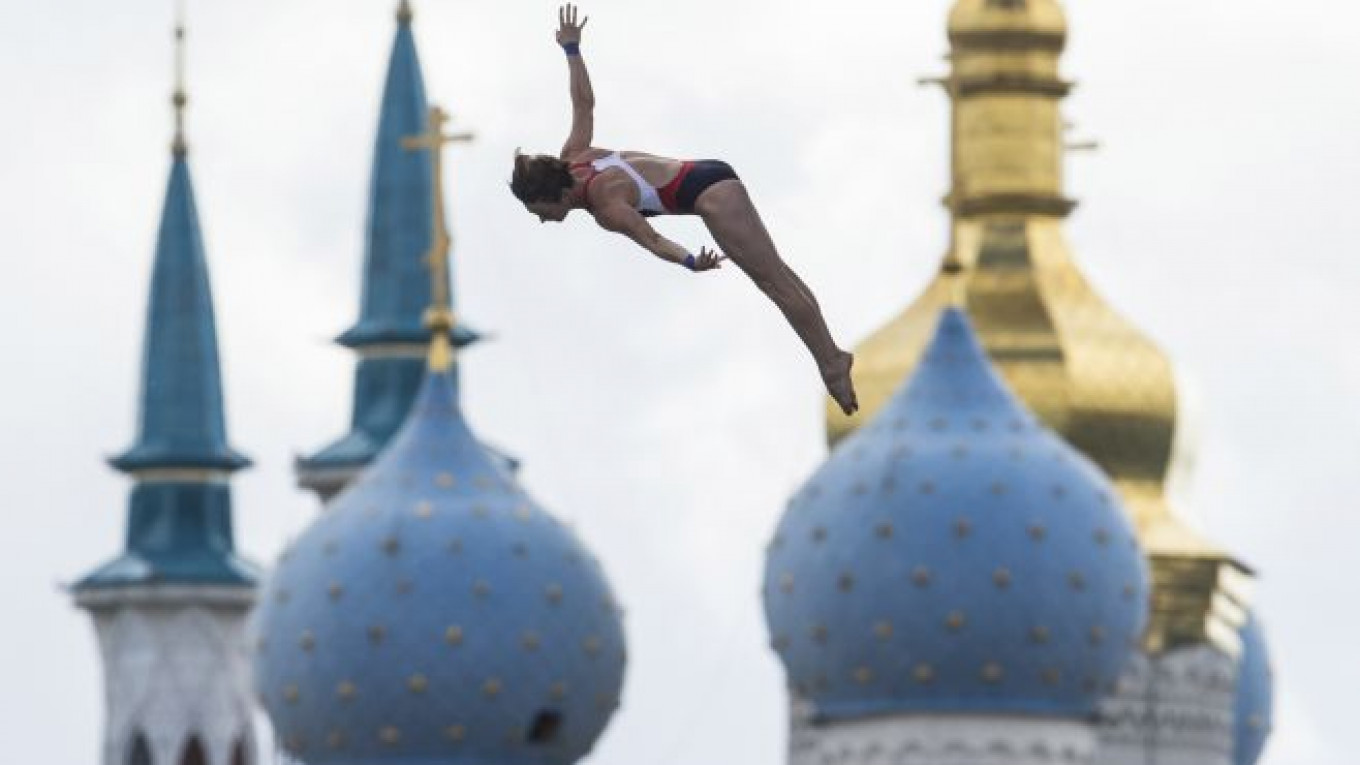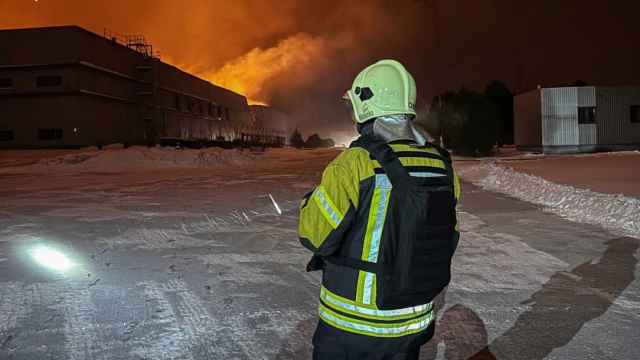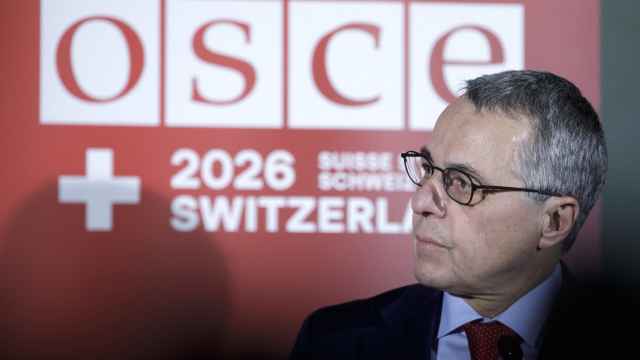KAZAN — The city calling itself "Russia's sports capital" isn't Moscow, St. Petersburg or even last year's Winter Olympic host Sochi. Instead it's Kazan, a provincial city with global ambitions.
The venue for U.S. swim phenomenon Katie Ledecky's record-breaking exploits at this month's world championships, Kazan wants to use the event as a springboard to bring the Summer Olympics to Russia for the first time since Moscow hosted the games in 1980.
In this traditionally Muslim city, where minarets and onion domes both rise over the city's kremlin, several Olympic-standard venues have already been built.
"To host the Olympic Games, the city and all the city infrastructure are ready at the very highest level" and only "insignificant changes" would be needed, regional sports minister Vladimir Leonov told The Associated Press in e-mailed comments as he visited next year's Olympic host Brazil on Saturday.
Kazan's hosting of the world aquatics championships has been big and brash, installing an Olympic-size pool in a soccer stadium packed with cheering spectators and staging 25-meter high diving against the backdrop of the kremlin.
"Most of the swimmers in their careers, they have no opportunity to experience such a reception and such support from the stands," said Russian former Olympic champion swimmer Alexander Popov, now a member of the International Olympic Committee, the body that chooses Olympic hosts. "Even being just a part of the spectators still feels fantastic."
All this comes at a time when the Russian economy is struggling under pressure from international sanctions and the depressed oil price.
Next up for Kazan is World Cup soccer in 2018, when the city's venue will be the 45,000-seat Kazan Arena, which held two swimming pools for the world championships. Behind the scenes in the practice areas, some of the swimmers were already getting into the spirit.
"We were playing soccer earlier. I was with one of the Canadian coaches and we just thought it would be cool to say that we've played soccer on the field that the 2018 World Cup is going to be on," U.S. star Missy Franklin said Tuesday.
At the World Cup, Kazan will be the only traditionally Muslim city among the 11 hosting games. It is a place that wears its religion lightly, with bars common and Islamic clothing rare. The main mosque was only finished in 2005, reaffirming regional identity after decades of Soviet homogenization.
Kazan's breakthrough moment as a sports city came in 2013, when it hosted the University Games, near-Olympic in the number of events and athletes but with much less global attention. Many of those facilities would form the basis for a future Kazan Olympic bid. The window to apply for the 2024 Olympics closes next month, and time is running out for Kazan to declare interest.
"The door is closing and the Russian Olympic Committee, as far as I know, has no intention to put in a bid for the 2024 summer games," said Popov. "I don't think Kazan will bid for '24 but maybe for the future, '28."
One challenge for a Kazan Olympics would be financial. So far, much of the money for its sports ambitions has come from the Russian taxpayer, but now the Russian government is cutting spending.
Another would be local enthusiasm. While stands have been mostly full for the swimming championships, other events have been poorly attended. Soccer club Rubin Kazan's average attendance last season for Russian Premier League games was less than one-third the capacity of its 45,000-seat stadium.
"One of the areas of professional sport that we need to develop is work to attract fans to sports events. And we're doing that work," Leonov said.
He says local authorities will now consider an Olympic bid, and the head of the Russian Olympic Committee has also expressed interest.
After the swim championships, Kazan's claim to be Russia's sports capital, Leonov added, "is now justified 100 percent."
A Message from The Moscow Times:
Dear readers,
We are facing unprecedented challenges. Russia's Prosecutor General's Office has designated The Moscow Times as an "undesirable" organization, criminalizing our work and putting our staff at risk of prosecution. This follows our earlier unjust labeling as a "foreign agent."
These actions are direct attempts to silence independent journalism in Russia. The authorities claim our work "discredits the decisions of the Russian leadership." We see things differently: we strive to provide accurate, unbiased reporting on Russia.
We, the journalists of The Moscow Times, refuse to be silenced. But to continue our work, we need your help.
Your support, no matter how small, makes a world of difference. If you can, please support us monthly starting from just $2. It's quick to set up, and every contribution makes a significant impact.
By supporting The Moscow Times, you're defending open, independent journalism in the face of repression. Thank you for standing with us.
Remind me later.






